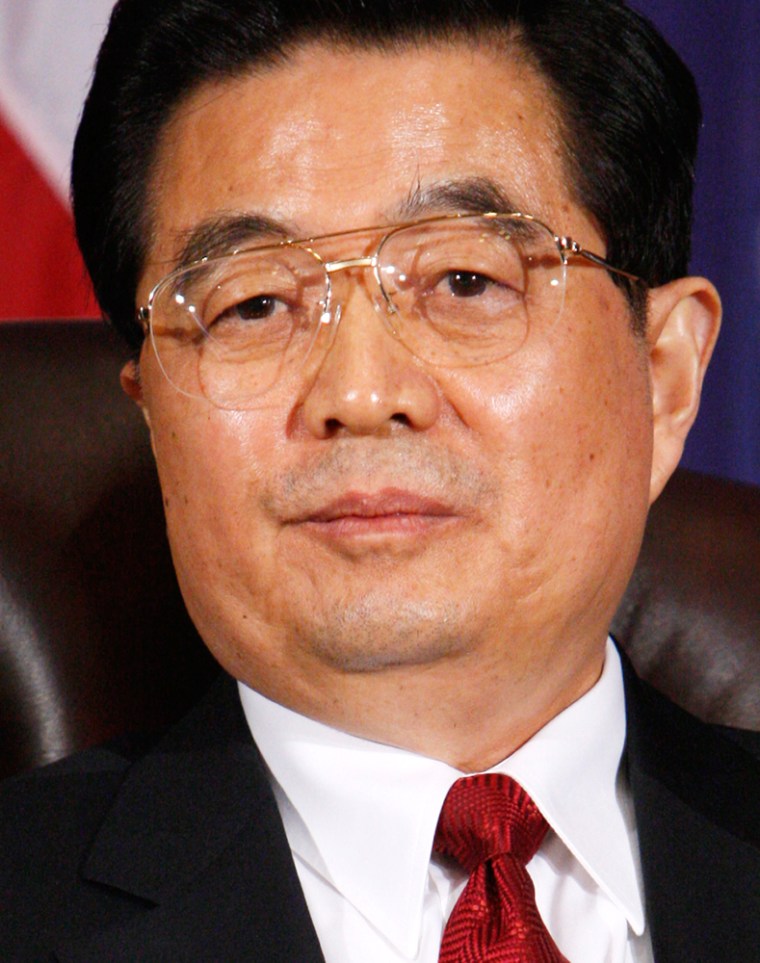Chinese President Hu Jintao defended the safety and quality of China’s exports Thursday and offered to work with other countries to improve any problems in the country’s inspection regimes.
Hu said China has put in place rigorous quality controls for manufacturing and is improving monitoring systems to detect contamination of food products. For the 3½ years ending in June, he said, 99 percent of Chinese food exports to the United States, Japan and the European Union complied with safety stands.
“The Chinese Government has always taken the quality of Chinese products and the safety of Chinese food very seriously,” Hu said at a news conference with Australian Prime Minister John Howard on a visit to Australia’s business capital.
The comments were Hu’s lengthiest public remarks in the half-year since a spate of product recalls and bans on chemical-laden foods began raising U.S. and international concern about the safety of Chinese goods.
The public defense came in response to a question from a Chinese reporter and was likely screened in advance as is customary in China. It was delivered as Hu prepares to meet Asia-Pacific leaders at an economic summit where China is already under fire for the problematic exports.
President Bush raised the product safety issue with Hu at a meeting later Thursday, and the Chinese leader repeated his offer to cooperate.
“The Chinese side is willing and ready to work together with the international community to step up cooperation in quality inspections and examinations,” said Hu.
Trade and foreign ministers, meeting ahead of the summit, also cited food safety as a problem, drawing more expressions of cooperation. “I can tell you the Chinese intervened in a very positive way in these discussions,” Japanese Foreign Affairs Ministry spokesman Mitsuo Sabaka said.
Despite the expressed willingness to cooperate, more questions arose about China’s handling of the disputes and the extent of the lapses. The main quality inspection agency announced a new crackdown on illegal distilleries and producers of fake name-brand alcohol across the country.
The Washington Post reported this week that Chinese officials tried to bully Indonesia, Malaysia and the Philippines into reconsidering separate import bans on substandard or dangerous food products and consumer goods.
On Thursday, a spokeswoman for China’s Ministry of Foreign Affairs dismissed the report as “groundless and not in line with facts.”
“The imports and export products of China must be line with China’s regulations, laws and standards, and also in line with the standards and requests of the importing countries,” the spokeswoman, Jiang Yu, said at a regular briefing in Beijing.
In a sign of Beijing’s more cooperative approach, Jiang said an Indonesian delegation was in China to discuss food safety.
Beijing bungled its public relations effort in the first weeks after tainted pet food ingredients killed dogs in the United States. It shut down some small factories, released little public information and accused Western media of exaggerating the problem.
In the weeks that followed as toothpaste, catfish, Mattel Inc. toys and other products were pulled from store shelves in the United States, China initiated a more energetic response, passing new rules, tightening inspections and seeking advice from foreign consulting firms. One consultant’s advice: Stop blaming the foreign media.
The stakes for Beijing are obvious. Fears about safety could drive foreign consumers to shun Chinese goods, hurting an export sector that is a major employer and whose surpluses have fed the country’s huge foreign exchange reserves.
“If there continues to be a problem, manufacturing in China will take a further hit,” said Yiyi Lu, a China specialist at Chatham House, a London-based think tank.
Lu said Chinese leaders know that promises alone will not resolve the problem with the international community.
In Sydney, President Hu noted that foreign media reports have raised suspicions about Chinese goods, but he struck a more conciliatory tone.
“Recently some international media have questioned the quality of Chinese products and the safety of Chinese food,” Hu said. “The Chinese government takes this international opinion quite seriously and we have conducted very serious investigations into this matter.”
